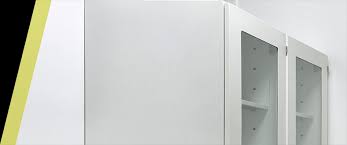Introduction
In the world of laboratory design and functionality, adhering to standards is of utmost importance. One such crucial standard is EN 14727:2005, which outlines the requirements for laboratory furniture. Laboratory environments demand furniture that can withstand rigorous conditions, promote safety, and facilitate efficient work processes. This article delves deep into the details of EN 14727:2005, exploring its significance, key elements, and why complying with this standard can elevate laboratory performance.
Understanding EN 14727:2005
EN 14727:2005 is a European standard that specifically pertains to laboratory furniture. It aims to establish essential guidelines to ensure the safety, quality, and functionality of laboratory furniture items. These guidelines encompass a wide range of furniture types commonly found in laboratories, including workbenches, storage cabinets, fume hoods, and more.
Scope and Applicability
The standard applies to all laboratory furniture that is designed, manufactured, and intended for use in laboratories and related areas. Whether it’s an educational, research, or industrial laboratory, compliance with EN 14727:2005 is essential for achieving the highest level of efficiency and safety.
Key Requirements
1. Materials and Construction
EN 14727:2005 sets strict guidelines for the materials used in laboratory furniture. The materials should be resistant to chemicals, temperature changes, and mechanical stress. Additionally, the construction of the furniture must ensure stability and durability to withstand the demands of a laboratory environment.
2. Ergonomics
Ergonomics is a significant aspect of laboratory furniture design. Furniture should be adjustable to accommodate users of various heights and promote proper posture during work. Ergonomically designed furniture enhances user comfort and productivity while reducing the risk of musculoskeletal disorders.
3. Safety Features
Laboratories often deal with hazardous substances. Hence, safety is a paramount concern. EN 14727:2005 mandates that laboratory furniture must include safety features like spill containment, chemical resistance, and fire-retardant properties to mitigate potential risks.
4. Worktops
Worktops are vital components of laboratory furniture. The standard defines specific requirements for worktops, including their resistance to chemicals, abrasion, and heat. Worktops should also have smooth edges to prevent injury during use.
5. Storage and Ventilation
Proper storage and ventilation are crucial in a laboratory setting. EN 14727:2005 lays down specifications for storage cabinets and fume hoods, ensuring efficient storage of chemicals and fume extraction to maintain a safe and clean working environment.
Advantages of Compliance
1. Enhanced Safety
By adhering to EN 14727:2005, laboratories can significantly improve safety measures. Furniture designed and constructed with safety in mind reduces the likelihood of accidents and exposure to hazardous substances, protecting both users and valuable equipment.
2. Improved Efficiency
Efficiently designed laboratory furniture optimizes workspace utilization and workflow. Ergonomic features reduce user fatigue and discomfort, enhancing overall productivity and accuracy in experimental processes.
3. Longevity of Furniture
Furniture that complies with EN 14727:2005 is built to withstand the challenges of a laboratory environment. With enhanced durability, laboratories can enjoy prolonged use of furniture without compromising performance.
4. Regulatory Compliance
Compliance with EN 14727:2005 ensures conformity with European regulatory standards. Meeting these requirements is not only essential for laboratory operations but may also be necessary for certification and accreditation purposes.
Selecting the Right Laboratory Furniture
When acquiring laboratory furniture, it is crucial to consider various factors to ensure the best fit for your specific needs:
1. Needs Assessment
Conduct a thorough needs assessment to determine the type and quantity of furniture required. Consider the nature of experiments, the number of users, and the available space.
2. Quality and Certification
Always choose laboratory furniture from reputable manufacturers who adhere to EN 14727:2005. Look for certifications and quality guarantees to ensure compliance.
3. Customization Options
Opt for furniture that offers customization options to meet specific laboratory requirements. Adjustable features and modular designs can be highly beneficial.
4. Maintenance and Service
Consider the ease of maintenance and the availability of after-sales service. Regular maintenance prolongs the lifespan of laboratory furniture and ensures its continued optimal performance.
Conclusion
In conclusion, EN 14727:2005 is a vital standard that outlines requirements for laboratory furniture. Complying with this standard not only ensures safety and efficiency in laboratory operations but also demonstrates a commitment to quality and adherence to regulatory guidelines. Selecting the right laboratory furniture based on this standard can contribute significantly to a productive and safe working environment for researchers, scientists, and students alike.








